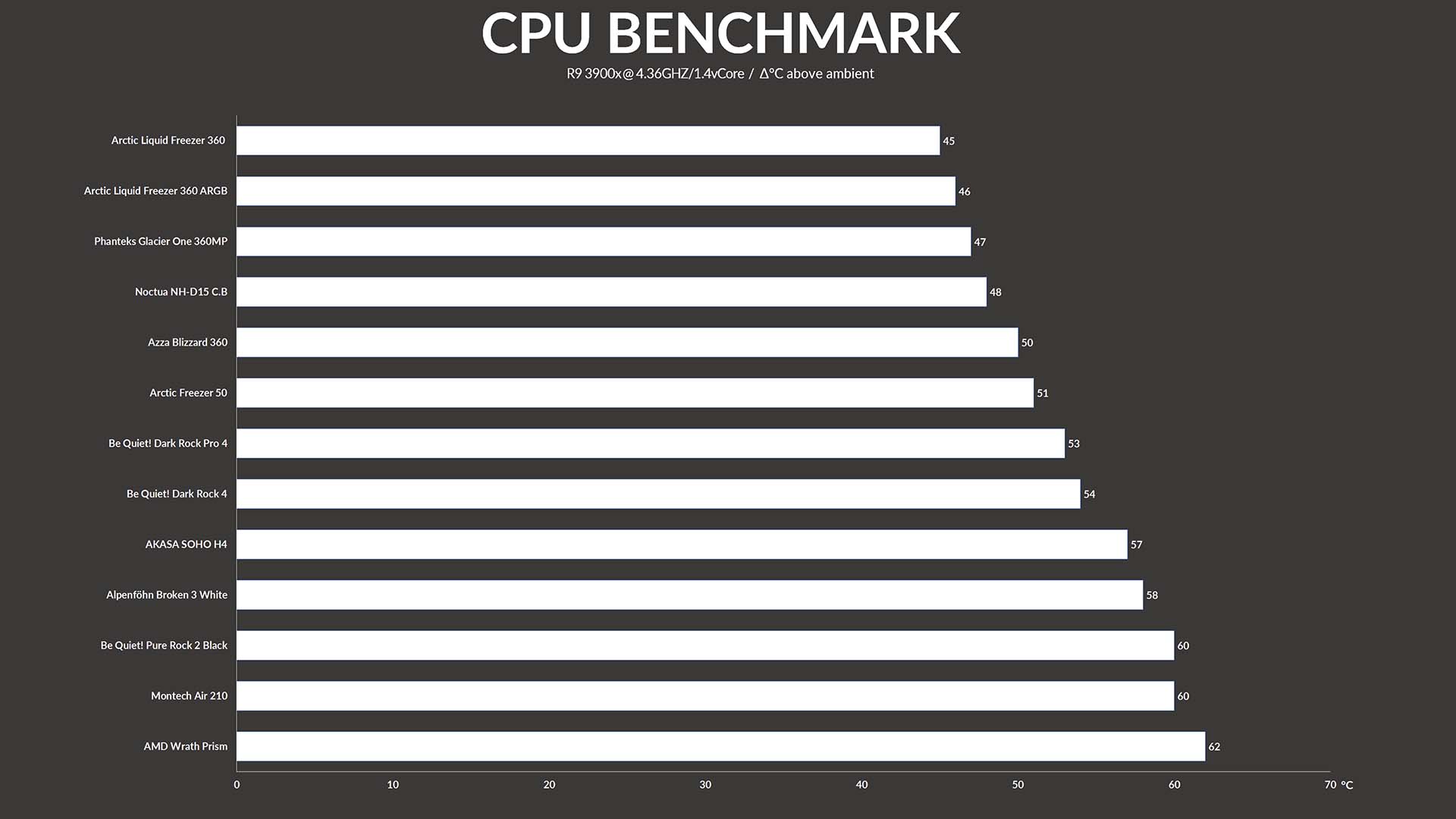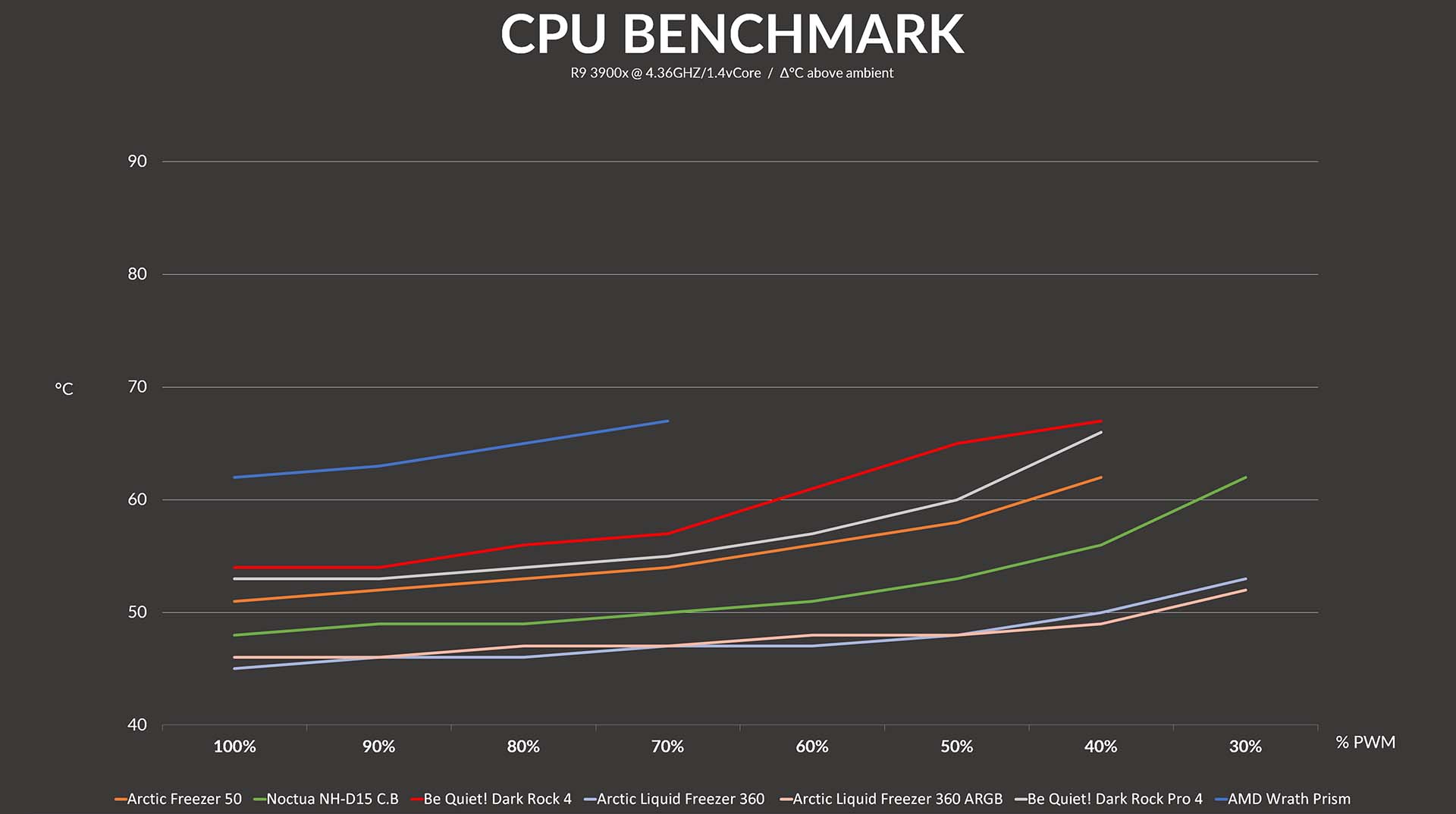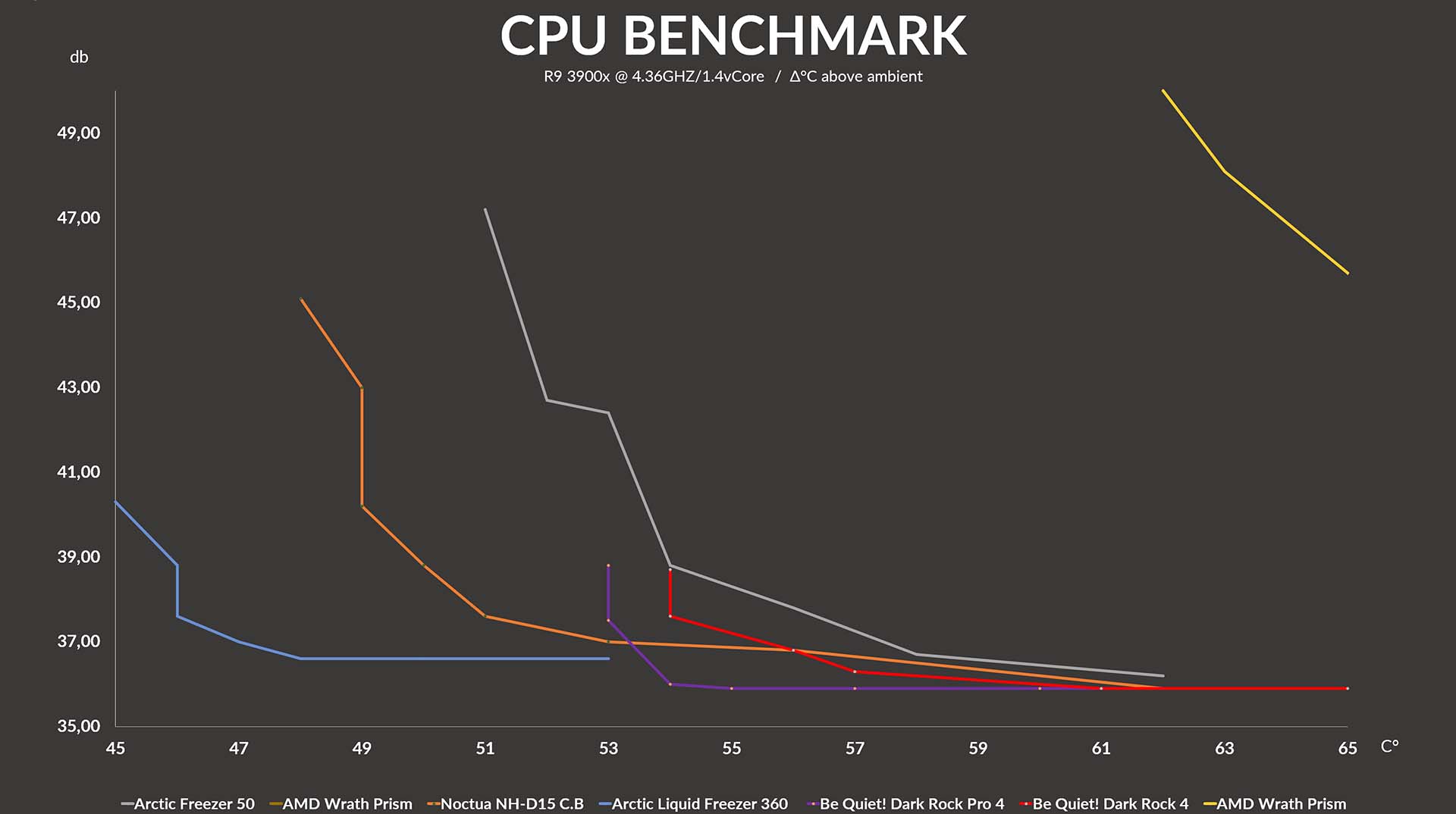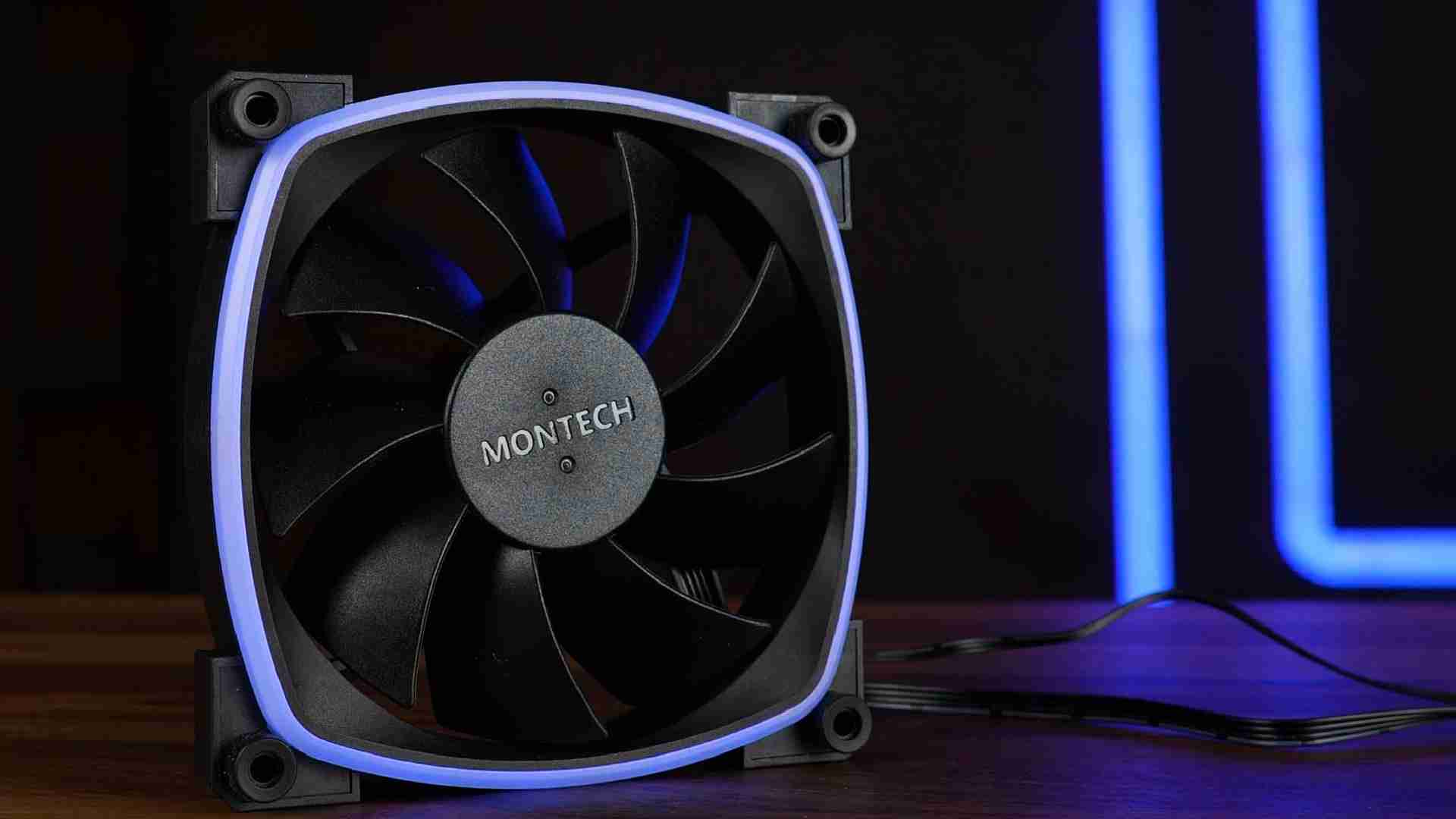Be Quiet! Dark Rock 4 Review
Introduction
Among all known CPU coolers, Be Quiet! is definitely one of the most important brands. Amazing performance, best in class noise, everything you would want! Let's see if their Be Quiet! Dark Rock 4 can meet our expectations!
Positive
- Very good Performance
- Best-in-Class Noise
- Very affordable
Neutral
- No RGB
Negative
- Fiddling Installation
- Fan Clips hard to install/remove
What's in the Box?

Be Quiet!'s Dark Rock 4 comes in the usual Be Quiet! dark-colored packaging.
Once everything is taken out of the box, we're greeted with the following items:
- Be Quiet! Dark Rock 4
- Be Quiet! Silent Wing 3 135mm
- Intel Installation Hardware
- AMD Installation Hardware
- Thermal Paste
- Manual in several languages
Additionally to the mandatory cooler-related pieces, Be Quiet! also includes a long Be Quiet! branded Philips-head screwdriver. It can easily be missed because it's pressed into the backside of one of the styrofoam panels keeping everything organized. Even though the installation can be done with every other normal screwdriver, make sure not to miss it as its length surely helps during the installation process.
The side of the cooler includes a short spec sheet which we summarized down below:
| Name | Be Quiet Dark Rock 4 |
| Dimensions | 96x136x159mm (LxWxH) |
| Fan Name | Be Quiet! Silent Wing 3 |
| Fan Speed | 1400RPM |
| TDP | Up to 200W |
| RGB | No |
Compatibility
The Be Quiet! Dark Rock 4 is compatible with every nowadays still relevant socket. Down below you'll find the complete list:
| Intel | AMD |
| LGA 1200 | AM4 |
| LGA 1156 | AM3+ |
| LGA 1155 | AM3 |
| LGA 1151 | AM2+ |
| LGA 1150 | AM2 |
| LGA 1366 |
FM2+ |
| LGA 2011-3 | FM2 |
| LGA 2066 | FM1 |
Individual Components
Fan

In order to get the heat away from the cooler, Be Quiet! used one of their inhouse made Silent Wing 3 Fans. Unfortunately, they did not use one of their models separately available. Therefore, we are unable to get any specific information such as Airflow or Static pressure. The only available information is that the Fan is spinning at up to 1400RPM using a PWM connection and that the maximum amount of noise, is 21.4db@100%.
Even though we don't have access to any specifics, we found the fan to be incredibly well-performing, but we'll cover this in the Benchmark section.
Heatsink

The 159mm high black ceramic coated heatsink used on the Dark Rock 4 is a massively thick, 74mm thick single tower radiator. By using 5 copper heat pipes and a copper base plate, Be Quiet! seems to have reached the maximum amount of material that makes sense in such a setup.
Installation
Installing a Be Quiet! Dark Rock 4 is a similar process to any other Be Quiet! cooler we had so far. By re-using their central bridge approach, Be Quiet! unfortunately also re-created a fiddly experience.
AMD

On an AMD platform Motherboard, we first need to remove the pre-installed black retention brackets.
After positioning the black spacers (with the more open side down) we can place the AMD retention brackets on top and screw them down.
Please make sure that retention brackets are screwed in while being in an out-ways pointing orientation.

After applying some thermal paste, we can position the central mounting bridge on top of the Heatsink Base while making sure it sits flush.
Once the cooler is installed on the CPU while making sure that the holes in the bridge align with the holes on the retention brackets, we can screw it down.
Intel
While using an Intel Plattform Motherboard, the installation requires a few additional steps.

For the boards without a pre-installed backplate, we need to use the one provided by Be Quiet! and position the silver Intel screws in the holes of the backplate meant for the Socket in use while fixing them with one of the rubber o-rings provided in the Intel mounting bag.
Once the backplate is in position, we can screw in the spacers from the other side with the cross-Philips indentation pointing upwards.
For the boards with a pre-installed backplate, we can simply screw in the provided Intel Backplate screws.

Now we can install the retention brackets on top and screw them down.
Please make sure that retention brackets are screwed in while being in an out-ways pointing orientation.
After applying some thermal paste, we can position the central mounting bridge on top of the Heatsink Base while making sure it sits flush.
Once the cooler is installed on the CPU while making sure that the holes in the bridge align with the holes on the retention brackets, we can screw it down.

After having installed the cooler on the CPU, it's time to mount the fan. Unfortunately, installing and removing the fan does not seem to be the most enjoyable experience we've had so far. After positioning the fan on the Heatsink side with the rubber pads, we have to position the clips in the Fan-Screw holes and press the clip into the heatsink while pressing on the sides.
Even though this might seem like a fairly easy process, removing the fan ends up being slightly more complicated. While others might recommend alternative ways such as fiddling something through the heatsink in order to remove the clip, we found it to be easiest to press on the fan (while holding onto the heatsink, you don't want to rip it off the motherboard) and remove the fan-clip-hook out of fan hole. This way you don't risk damaging the heatsink's coating.
Benchmark
We tested the Be Quiet! Dark Rock 4 on our usual Ryzen 3900x locked at 4.36 GHZ and 1.4vCore.
While letting the Be Quiet! Dark Rock 4's Silent wing spin at 100% of its Fan speed, it managed to keep the CPU at 54°C.

Although these results seem to be exactly on the center of our Benchmark list, don't forget how close it got to the higher-class of CPU Coolers.
While operating on a surprisingly low noise level, the Dark Rock 4 managed to stay 1°C behind the much bigger and Dual-Fanned Dark Rock Pro 4 and just 3°C behind the much louder Freezer 50.
Lowering the fan speed in 10% decrements showed that the Be Quiet! Dark Rock 4 manages to keep its position and even approach the much bigger Dark Rock Pro 4 slowly while maxing out the CPUs thermal abilities at 30% Fan speed.

Once we Noise-normalize our results, we can see that the Dark Rock 4's biggest advantage is its noise. Just like the Dark Rock Pro 4, the smaller single-tower sibling becomes undetectable by our DB-meter as soon as you touch the PWM control.
While getting compared to much bigger coolers, we cannot ignore how well it is able to keep up with the other, much bigger and louder alternatives.

Conclusion

Overall, there is very little to complain about this cooler. The Installation procedure might be a bit fiddly and worthy of an upgrade, and the Fan clips seem to be missing a piece. But these are just small issues compared to the brutal level of performance and noise that the Be Quiet! Dark Rock 4 has to offer.
Even compared to bigger coolers such as the Be Quiet! Dark Rock Pro 4, Arctic Freezer 50, and Noctua NH-D15, the smaller Dark Rock 4 manages to keep up surprisingly well.

Considering its size and price, the Dark Rock 4 perfectly hits that spot in which you can expect an exceptional level of performance while not hurting your wallet. The only thing you need the keep an eye on is the height. Not every PC Case supports 159mm high CPU coolers. But as long as you can fit it, we can only recommend this for every use case within the "normal" consumer market.


Noctua NF-A14 Review
Noctua is known to be one of the best Fan manufacturers. Their NF-A12x25 is the best example. But what about 140mm fans? Lets
Read More
Noctua NH-U9S Review
The Noctua NH-U9S has to fill a very delicate spot. Sitting right in between big full-tower and small form factor CPU coolers
Read More
Gelid Glacier RGB Review
What happens if we take two of Gelids Stella Fans, and slap them onto a dual tower heatsink? Exactly, one hell of a thick coo
Read More
Montech AX120 Review
First introduced in Montechs Sky Two case, it is time to take a closer look at their AX120 ARGB fans! With an RGB ring going
Read More